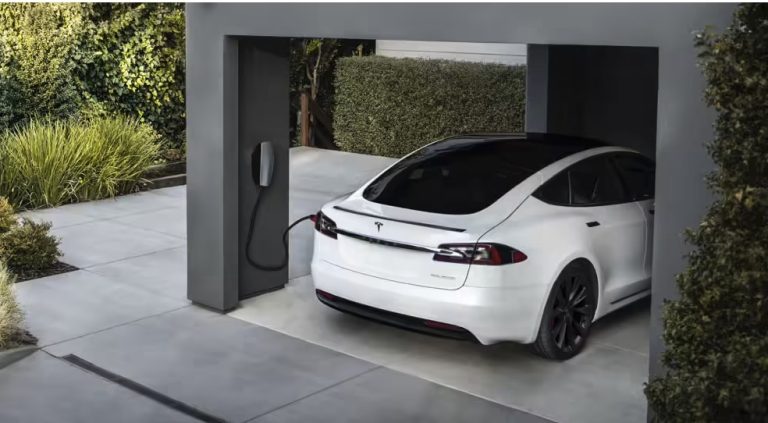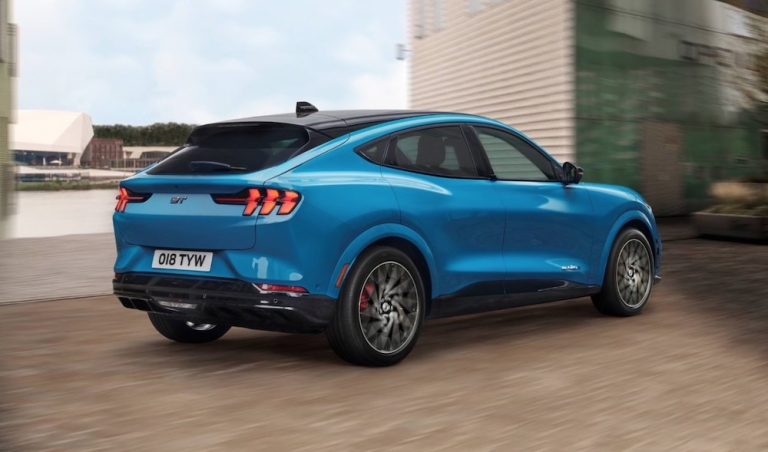Electric Cars: The Basics
For those of you new to zero-emission electric driving, we recommend a read of the following articles:
Sign up to the e-zoomed Electric Living newsletter
The Volkswagen Passat GTE PHEV Estate
Volkswagen AG, the Germany automotive group is one of the leading automotive companies in the global electric vehicle (EV) industry. Volkswagen has committed to an investment up to Euro 30 billion by 2023. It aims to sell 3 million electric vehicles by 2025 and launch up to 70 new EV models over the next 10 years.
With the launch of its electric vehicle ID. Family, VW is fast cementing a dominant position to become the world’s largest electric vehicle (EV) manufacturer by 2028, with the automotive behemoth planning to manufacturer 22 million electric vehicles. The automotive company currently has a number of battery-electric vehicles (BEVs) and plug-in hybrid electric vehicles (PHEVs) on sale, to include:
- The all-electric VW ID.3
- The all-electric VW ID.4
- The all-electric VW ID.4 GTX
- The all-electric VW ID.5
- The all-electric VW ID.7
- The all-electric VW e-up!
- VW Touareg Plug-In Hybrid
- VW Passat GTE Plug-In Hybrid
- VW Passat GTE Plug-In Hybrid Estate
- VW Golf 8 Plug-In Hybrid
- VW Tiguan eHybrid
The Volkswagen Passat (B8) was introduced in 2014. The B8 is the eight-generation in the VW Passat series, and it was the first VW passenger car to be based on the stretched version of the MQB platform. The GTE plug-in hybrid electric vehicle (PHEV) variant was unveiled at the 2014 Paris Motor Show and was on sale in 2015. The PHEV received a facelift in 2018.
Looking for a spacious estate family car, with a track record for reliability and low running costs? Well, the VW Passat GTE estate plug-in electric car is certainly an option worth considering. Despite the increased availability of family electric cars over the past three years, the introduction of estate electric cars has been relatively limited, for both the premium and non-premium badges.
The VW plug-in electric car has a 13 kWh onboard EV battery with a 62 km certified WLTP range. Though the real-world EV range will be lower, possibly closer to 56 km (zero-emission), the EV still has much to offer those keen to save money by driving on pure electric mode. Depending on the cost of charging, driving an electric car will cost between 5 and 10 cents per km i.e. far cheaper compared to calling on the internal combustion engine (ICE).
The PHEV is not DC charging compatible (most PHEVs are not) and has a 3.6 kW onboard charger. Quite typical for a PHEV in this segment. We discourage the use of a 3-PIN domestic plug for charging and encourage charging via a dedicated home EV charger. The Volkswagen PHEV can be fully charged in 3 hours and 40 minutes. Those still adamant to use a domestic 3-PIN plug, will have to wait 5 hours for a full charge!
Though the electric range is limited to 56 km, most of us would not require much more for our daily needs. So for all the shorter commutes to the school, high street, grocery store etc, driving on e-mode is a perfect fit! Even, for many that drive to work, driving on electric mode works well, as the electric car can be charged at home and at work (workplace EV charging)! For those weekend getaways, the petrol engine can be utilised for the longer drives.
Bottom-line, if you are not driving electric, you are not saving money. Moreover, driving in e-mode also further improves the efficiency of the vehicle. Volkswagen claims the PHEV has a fuel economy up to 1.1 l/100 km. Real-world economy will certainly be less efficient, but substantially better compared to the conventional internal combustion (ICE) variant.
In terms of performance, the front-wheel drive Volkswagen Passat PHEV delivers a decent experience. The 1.4-litre TSI petrol engine (6-speed) is paired with an electric motor (85 kW). The plug-in electric car can achieve 0-100 km/h in 7.6 seconds. The top speed of the EV is 220 km/h. The EV delivers 218 PS and 250 Nm torque. Certainly suitable for city and motorway driving. Of course, do keep in mind that the EV also benefits from instant torque.
Though the boot space has been reduced in size to accommodate the onboard EV battery, the PHEV is family-friendly in terms of practicality, offering adequate interior space, legroom, headroom (front and rear seat passengers) and cargo volume (483 L).
The EV has a good level of equipment and depending on the trim, the following come as standard: adaptive cruise control, driver alert system, fatigue detection, lane assist, traffic jam assist, emergency assist, voice activation, keyless start/stop, “Discover Media” navigation system, LED headlights, alloy wheels and more.
The electric vehicle (EV) has far lower tailpipe emissions (30 g CO2/km), compared to the internal combustion engine (ICE) variant. Bottom-line, electric driving is good for the environment and the wallet!
| PROS | CONS |
|---|---|
| A practical family estate car that is environment-friendly | Electric range is limited |
| Cheap to run on zero-emission electric range | Performance will not set the heart racing |
| Pleasant to drive | Boot space limited due to EV battery |
The Volkswagen Passat Estate PHEV (credit: VW)
| At A Glance | |
|---|---|
| EV Type: | Plug-In Hybrid Electric Vehicle (PHEV) |
| Body Type: | Estate |
| Engine: | Petrol/Electric (1.4 TSI 6-speed DSG) |
| Available In Ireland: | Yes |
| Variants (1 Option) |
|---|
| Volkswagen Passat Estate GTE (from € 52,560) |
| EV Battery & Emissions | |
|---|---|
| EV Battery Type: | Lithium-ion |
| EV Battery Capacity: | Available in one battery size: 13 kWh |
| Charging: | DC rapid charging not available. On board charger 3.6 kW AC |
| Charge Port: | Type 2 |
| EV Cable Type: | Type 2 |
| Tailpipe Emissions: | 30 – 26 g (CO2/km) |
| Battery Warranty: | 3 years or 90,000 km |
| Average Cost Of Residential Charging | |
|---|---|
| Battery net capacity : 8.8 kWh | € 2.10 |
| Battery net capacity : 11.6 kWh | € 2.78 |
| Battery net capacity : 12.0 kWh | € 2.87 |
| Battery net capacity : 13.10 kWh | € 3.14 |
| Battery net capacity : 14.10 kWh | € 3.37 |
- Note 1: The average cost of residential electricity in Ireland varies depending on the region, supplier and type of energy used. An average for Ireland is 23.97 cents/kWh.
- Note 2: Not all EV manufactures make available the data on net EV battery capacity, and in a number of instances the EV battery capacity advertised, does not state if it is gross or net capacity. In general, usable EV battery capacity is between 85% to 95% of the gross available capacity.
| Charging Times (Overview) | |
|---|---|
| Slow charging AC (3 kW – 3.6 kW): | 6 – 12 hours (dependent on size of EV battery & SOC) |
| Fast charging AC (7 kW – 22 kW): | 3 – 8 hours (dependent on size of EV battery & SoC) |
| Rapid charging AC (43 kW): | 0-80%: 20 mins to 60 mins (dependent on size of EV battery & SoC) |
- Note 1: SoC: state of charge
| Dimensions | |
|---|---|
| Height (mm): | 1469 |
| Width (mm): | 1832 |
| Length (mm): | 4773 |
| Wheelbase (mm): | 2789 |
| Turning Circle (m): | 11.7 |
| Boot Space (L): | 650 |
| Passat Estate GTE | |
|---|---|
| EV Battery Capacity: | 13 kWh |
| Pure Electric Range (WLTP): | 58 – 62 km |
| Electric Energy Consumption (kWh/km): | 15.1 – 15.7 |
| Fuel Consumption (l/100 km): | 1,1 |
| Charging: | DC rapid charging not available. On board charger 3.6 kW AC |
| Top Speed: | 220 km/h |
| 0-100 km/h: | 7.6 seconds |
| Drive: | Front-wheel drive (FWD) |
| Electric Motor (kW): | 85 |
| Max Power (PS): | 218 |
| Torque (Nm): | 250 |
| Transmission: | Automatic |
| Seats: | 5 |
| Doors: | 5 |
| Unladen Weight (kg): | 1,754 |
| Colours: | 6 |
| NCAP Safety Rating: | Five-Star |
Air Quality: An Overview
If there is one common theme that unites many of us, it is the concern over worsening air quality in our villages, towns and cities. This concern is not unique to Ireland, but a narrative that is now firmly centre stage globally. The detrimental health consequences of higher pollution, in particular, on the vulnerable, like children and the elderly is significant, and well documented.
According to the WHO (World Health Organisation), the PM2.5 concentration in Ireland is currently 1.6 times higher than the WHO annual air quality guideline value. WHO has described air pollution as the ‘single biggest environmental health risk’, leading to an increase in the risk of stroke, heart disease, lung cancer and respiratory diseases.
Electric vehicles and in particular, zero-tailpipe emission EVs, also known as battery-electric vehicles (BEVs), help improve local air quality i.e. a pure electric car does not have a tailpipe/ exhaust, hence, zero-tailpipe emissions! Without an iota of doubt, all types of EVs, to include, plug-in hybrid electric vehicles (PHEVs) are better for improving air quality, compared to conventional petrol and diesel vehicles. We encourage all drivers in Ireland to migrate to lower emission electric driving.
| Type Of Pollutants |
|---|
| Particulate matter (PM or PM 2.5) |
| Ammonia (NH3) |
| Nitrogen Oxide (NOx) |
| Sulphur Dioxide (SO2) |
| Non-methane volatile organic compounds (NMVOCS) |
| Primary Sources Of Pollutants |
|---|
| Road transportation |
| Industrial processes |
| Farming and agricultural processes |
| Waste industry |
| Energy generation |
| Domestic burning |
| Other forms of transportation, such as aviation, shipping and railroads |
While e-zoomed uses reasonable efforts to provide accurate and up-to-date information, some of the information provided is gathered from third parties and has not been independently verified by e-zoomed. While the information from the third party sources is believed to be reliable, no warranty, express or implied, is made by e-zoomed regarding the accuracy, adequacy, completeness, legality, reliability or usefulness of any information. This disclaimer applies to both isolated and aggregate uses of this information.






























